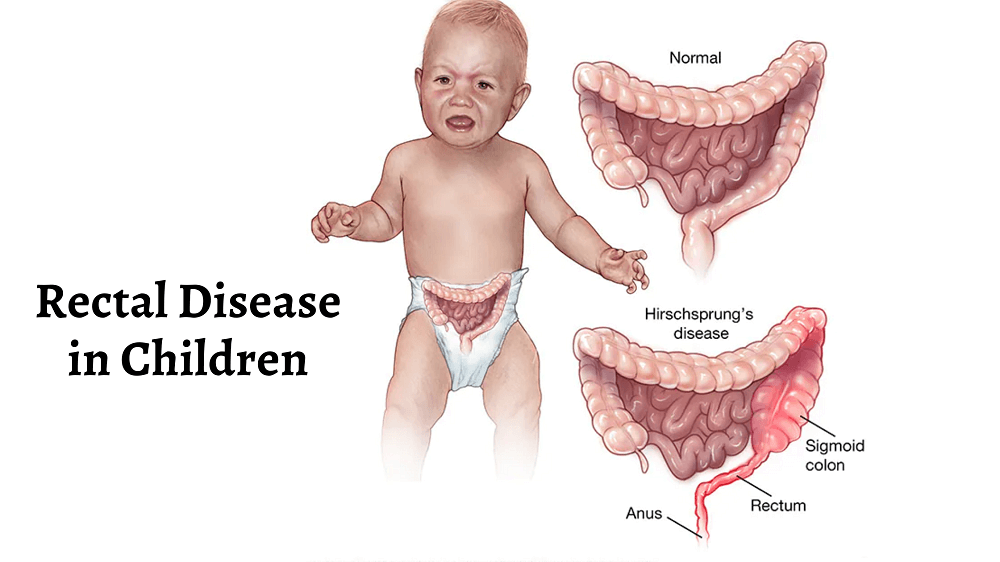Author : Dr. Partha Sarkar
Most anorectal diseases in paediatric age group are congenital, ie. abnormalities and anomalies, except Anal fissure and perianal abscess, which are always acquired.
Commonest cause of anorectal bleeding in children is anal fissure, where anal mucosal tear occurred during passing hard stool. Treatment of anal fissure is principally conservative, whereas perianal abscess secondary to neglected anal fissure is always surgery.
Second commonest cause of rectal bleeding in paediatric age groups is rectal polyp which is always painless and significant volume of blood passed per anus after defecation.
Rectal disease in children:-
Don’t worry if you’re concerned that your baby is experiencing hemorrhoids because of symptoms they’re having, you shouldn’t panic. Hemorrhoids in infants and young children are rare.
Symptoms of hemorrhoids in babies:-
Since babies can’t tell you what’s bothering them, it’s important to be vigilant and attentive for certain symptoms to determine if your infant has hemorrhoids. Although it would be an extremely rare occurrence, if you see swollen, irritated lumps around your baby’s anus, it could be an indication of hemorrhoids, which are common symptoms of hemorrhoids in adults — and sometimes older children and teenagers — in an infant those are likely caused by other conditions such as constipation or in anal fissure.
These symptoms include:-
1. Streaks Of Bright Red Blood In The Stool
2. Mucus Leaking From The Anus
3. Crying During A Bowel Movement
4. Hard, Dry Stools
If you think your baby has hemorrhoids, you should get a diagnosis from your child’s pediatrician, as it’s likely something different. In some extreme cases, symptoms of blood in the stool may indicate a more serious condition. Once your doctor has made a diagnosis, there are different approaches you can take for treating your baby’s pain and fussiness.
As per my opinion, If there is any issue first consult your family physician first.



